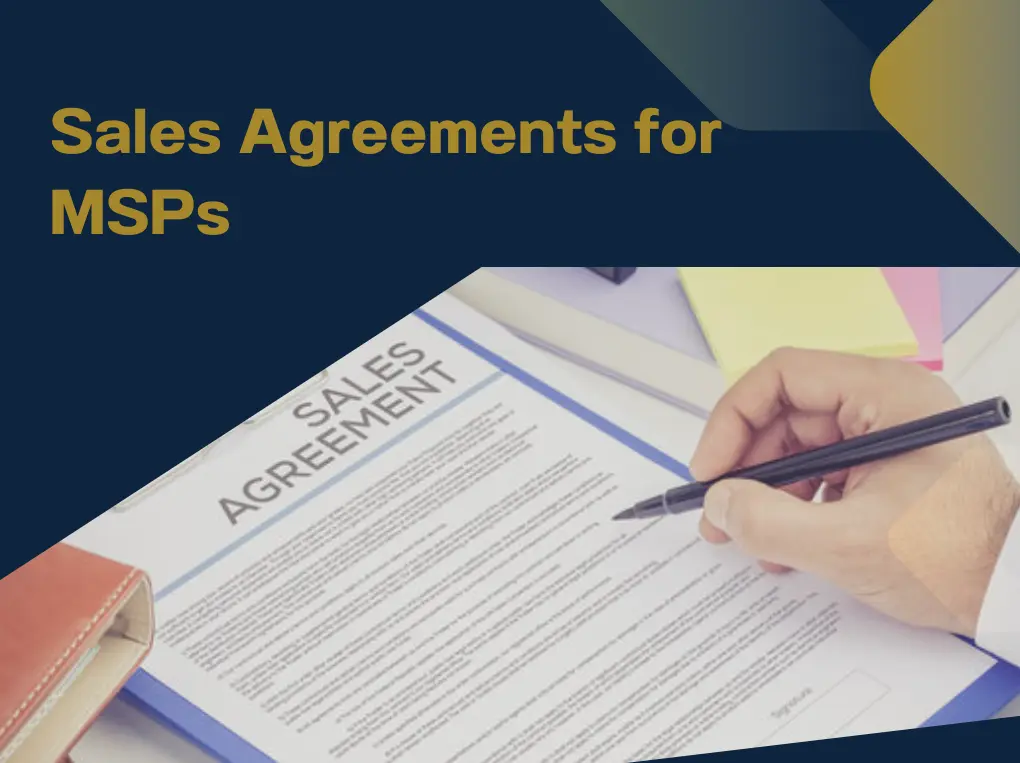Negotiation is a critical skill for Managed Service Providers (MSPs) to master in sales agreements. Effective negotiation can secure better terms, drive business growth, and spruce up client loyalty. When MSPs approach sales negotiations with confidence and preparation, they can communicate their value clearly and convincingly.
Communication is key. By listening actively and responding thoughtfully, MSPs can understand clients’ needs and frame their offerings to meet those needs. This not only builds trust but also positions the MSP as a partner rather than just a vendor.
In this blog post, we’ll explore the key strategies and techniques that MSPs can employ to negotiate successful sales agreements.
Sales Agreements for MSPs: Strategic Negotiation Techniques for Closing Deals
In sales agreements for MSPs, mastering negotiation and closing deals is critical. This involves understanding key tactics, handling objections effectively, and using proven methods to seal the deal.
Understanding Your Client’s Needs and Objectives
The foundation of any successful negotiation lies in understanding your client’s needs, goals, and pain points. Before entering into a negotiation, take the time to research your client’s business, industry, and competitive landscape. Engage in active listening during conversations to gain deeper insights into their pain points and objectives.
By demonstrating a genuine interest in your client’s success and aligning your solutions with their goals, you establish trust and credibility, setting the stage for a more collaborative and productive negotiation process.
Being Prepared and Data-Driven
Entering a negotiation well-prepared is essential for closing deals. Conduct thorough research on industry benchmarks, competitor offerings, and market trends to support your proposals and counteroffers. Use data and case studies to demonstrate the value and ROI of your services, making it easier for clients to understand the tangible benefits of partnering with your MSP.
Knowing the client’s pain points, market conditions, and potential objections allows for more strategic and persuasive negotiations.
By presenting a strong, data-driven case for your managed services, you can more effectively justify your pricing, terms, and conditions and build confidence in your ability to deliver results.
Mastering the Art of Active Listening and Empathy
Effective negotiation is not just about presenting your own ideas and proposals; it’s also about actively listening to your client’s concerns, objections, and perspectives. Practice active listening techniques, such as striking up conversations and asking clarifying questions, to ensure that you fully understand your client’s position and can address their needs more effectively.
Demonstrate empathy by acknowledging your client’s challenges and showing a genuine commitment to finding solutions that work for them. Creating an atmosphere of trust, respect, and collaboration lays the foundation for a more successful negotiation process.
Offering Flexible Pricing Models
One of the key strategies for successful negotiation in sales agreements is offering pricing models that cater to your client’s unique needs and budgetary constraints. By presenting pricing options you demonstrate your willingness to adapt to your client’s requirements and find a solution that works best for them. This flexibility increases the likelihood of reaching a mutually beneficial agreement and shows your commitment to building a long-term, customer-centric relationship.
Additionally, by offering transparent and customizable pricing, you differentiate your MSP from competitors who may offer more rigid or one-size-fits-all approaches, positioning your business as a true partner in your client’s success.
Leveraging the Power of Silence in Negotiations
One often overlooked but highly effective technique in negotiations is the strategic use of silence. Silence can be a powerful tool when used judiciously, allowing you to create space for reflection and encourage the other party to share more information. By pausing after making a proposal or asking a question, you allow your client to process your words and respond thoughtfully. This can lead to more revealing discussions and uncover valuable insights into their needs and concerns.
Conclusion
Negotiating successful sales agreements is critical for MSPs looking to build thriving, long-term relationships with their clients. By understanding your client’s needs, developing a win-win mindset, being prepared and data-driven, actively listening and empathizing, finding compromise, and continuously refining your skills, you can master the art of negotiation and achieve better outcomes for all parties involved.
Don’t miss this opportunity to take your MSP’s sales performance to the next level. Get in touch with Dori Spade today to elevate your MSP’s negotiation methodologies and drive more successful deals.



